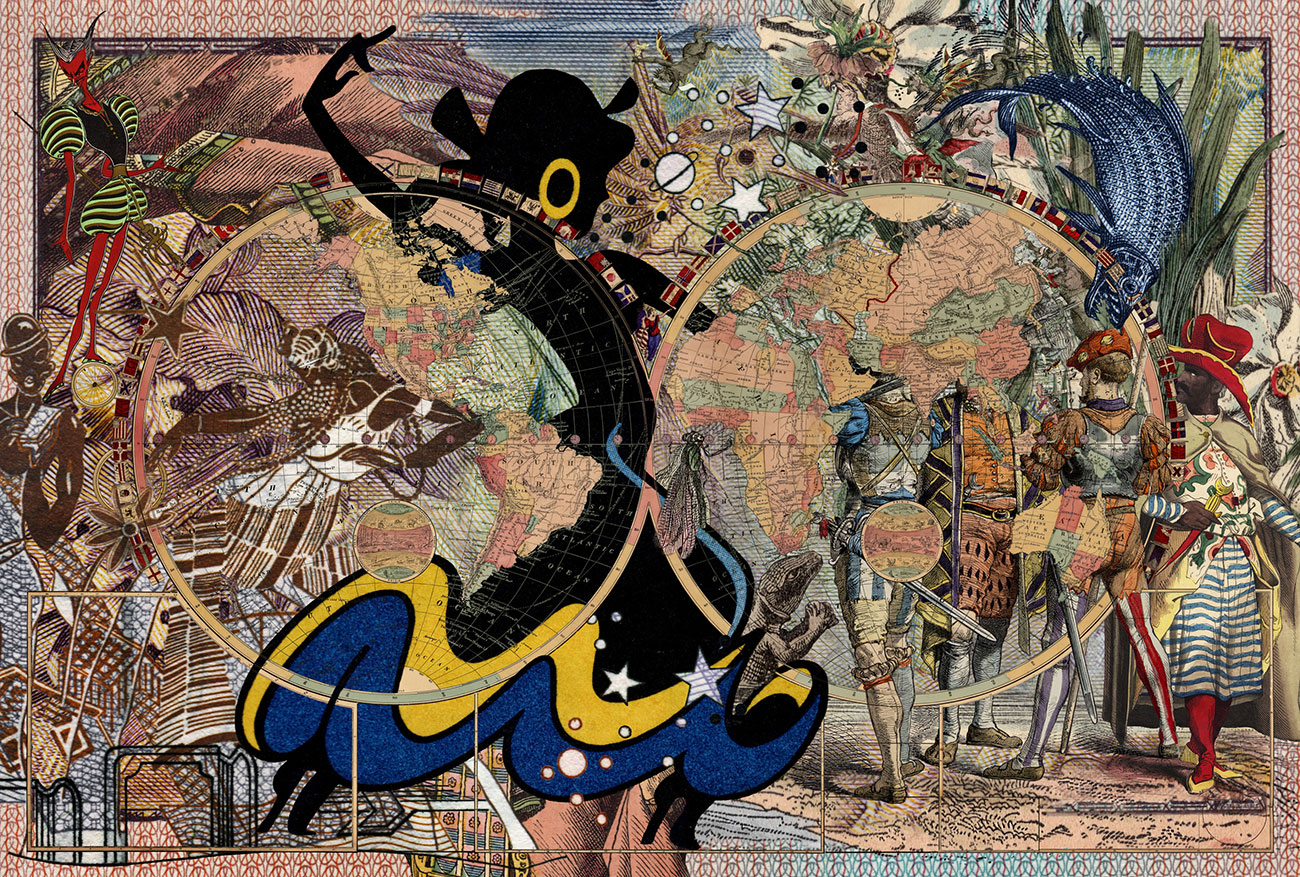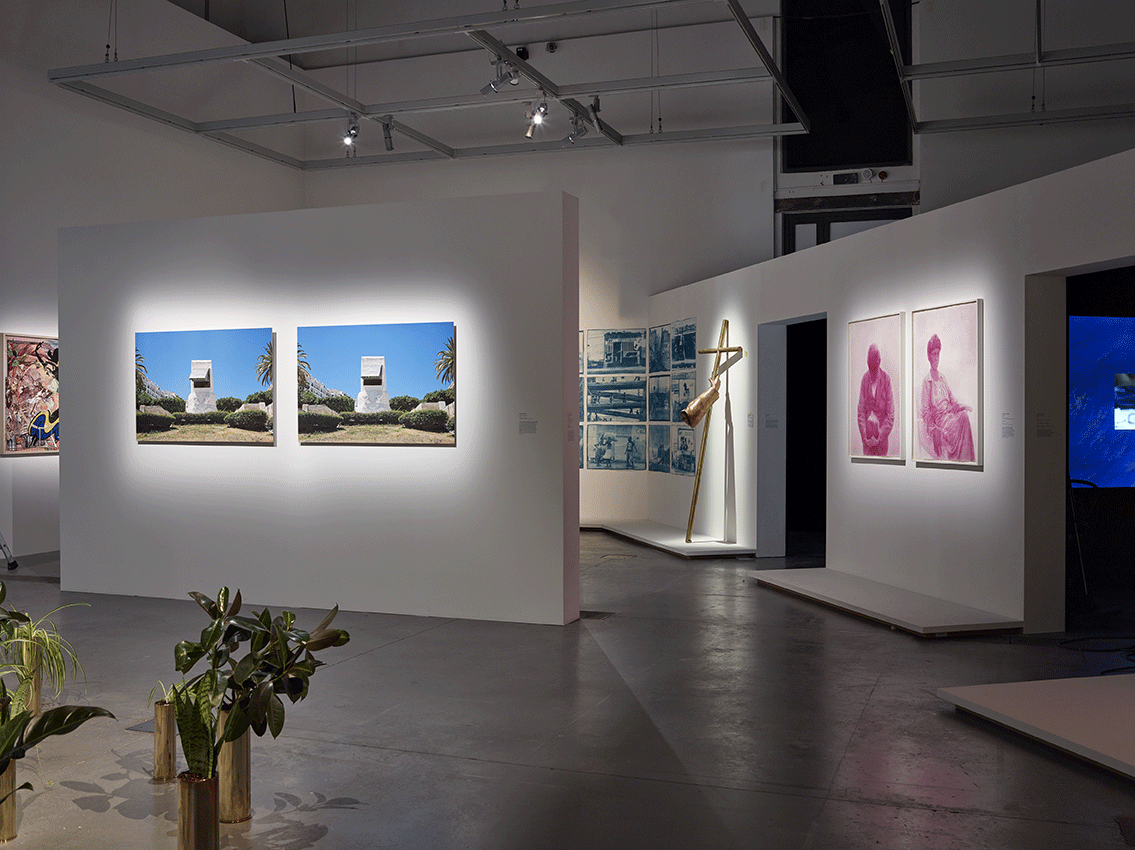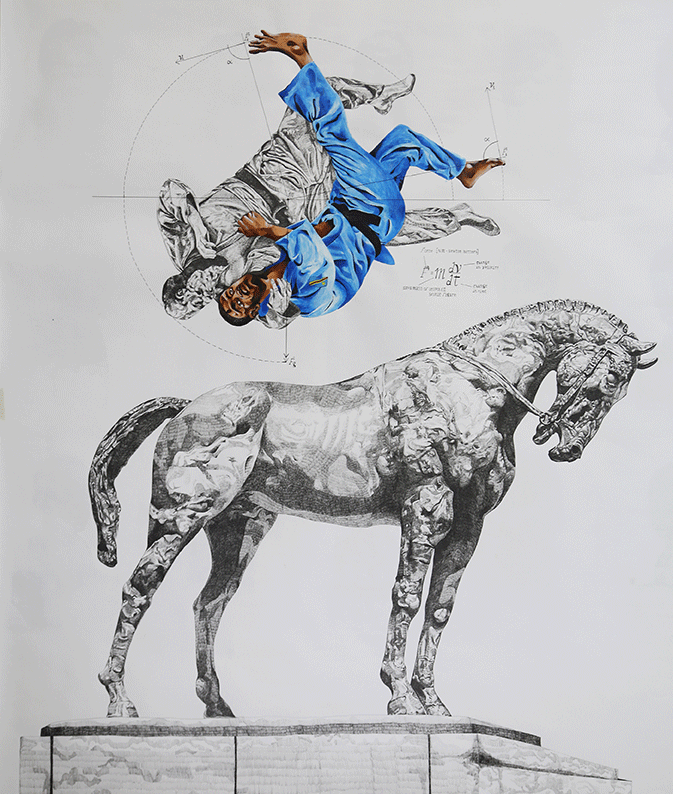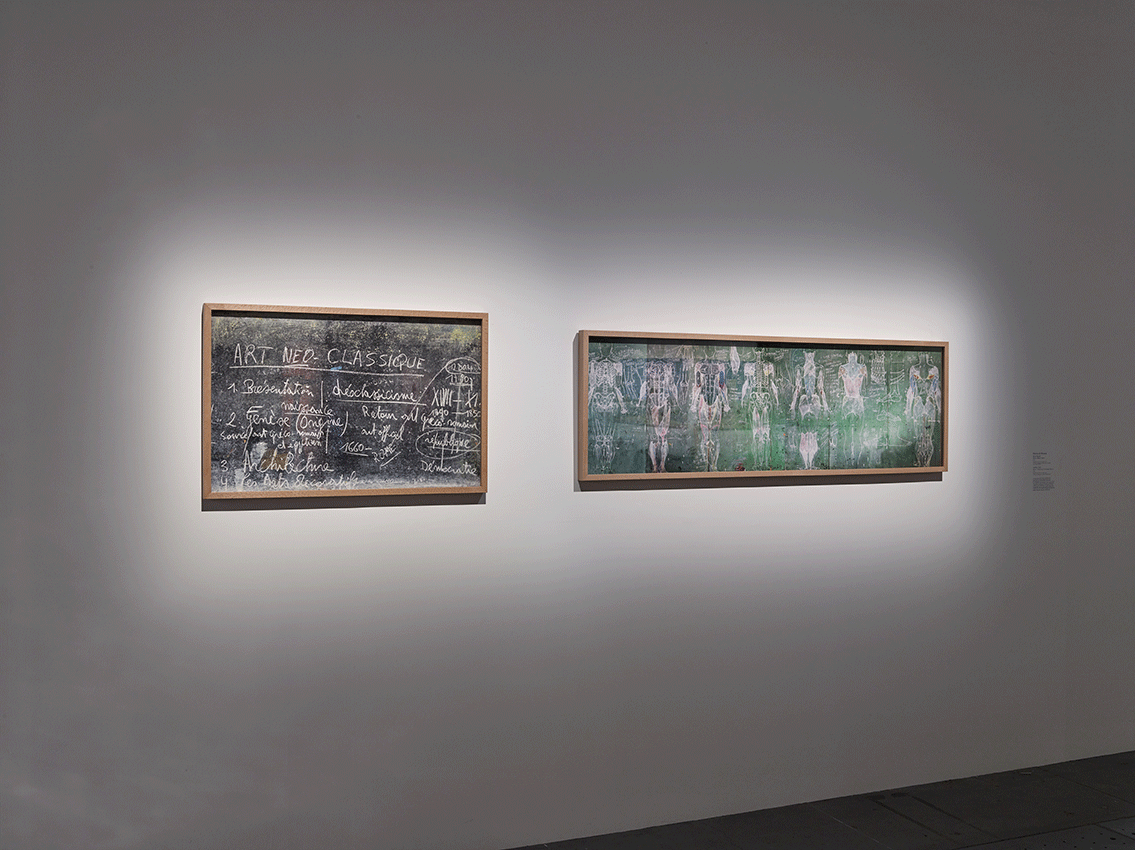Europa, Oxalá





The exhibition “EUROPA, Oxalá” focuses on memory and postcolonial studies, two interdisciplinary fields in themselves, and offers the opportunity to discover a group of European artists and intellectuals, whose parents are mostly from the former colonies of overseas empires.
“EUROPA, Oxalá” takes place in three European countries — France (Marseille), Belgium (Brussels) and Portugal (Lisbon) — and presents not only a visual arts exhibition, but also a series of debates. The exhibition will produce a catalogue and a book of essays, with texts by major authors. The exhibited works have been created by “Children of Empires”, ie second and third generation artists, born and raised in a postcolonial context, and whose artistic production is for the most part produced in Europe, providing a reflection on the colonial legacy, hence the name “post-memory” artists. As receivers of memories passed on by parents and grandparents who were born and lived in colonized territories such as the Congo, Angola, Guinea, Benin, Algeria, and Madagascar, these artists welcomed and inherited not only voices, sounds, and practices, but also visual documents and memories — the starting point for an important research work in historical archives. Their artistic production, the reflection they bring in the sense of the fight against racism, the decolonization of the arts, the deconstruction of colonial thinking, the development of the art world, the contribution of new realities, and the singular way in which these artists combine contemporary languages and processes, are an essential contribution to contemporary Europe’s economic and social development. Moreover, the innovative and transnational nature of their works has profoundly marked the artistic and cultural scene over the last two decades.
The Exhibition “EUROPA, Oxalá” at the Mucem presents some sixty works — paintings, drawings, sculptures, films, photos, and installations — by twenty-two artists: Abel Abdessemed, Aimé Mpane, Aimé Ntakiyica, Carlos Bunga, Délio Jasse, Djamel Kokene, Fayçal Baghriche, Francisco Vidal, John K. Cobra, Katia Kameli, Kader Attia, Mohamed Bourouissa, Josèfa Ntjam, Malala Andrialavidrazana, Márcio de Carvalho, Mónica de Miranda, Nú Barreto, Pauliana Valente Pimentel, Pedro A. H. Paixão, Sabrina Belouaar, Sammy Baloji, and Sandra Mujinga.
“EUROPA, Oxalá” brings a new visibility to an artistic world that testifies to the creative power of contemporary European cultural diversity, opening ways towards a new meaning to the notion of Europe.
—Curators: António Pinto Ribeiro, curator, University of Coimbra; Katia Kameli, artist and curator; Aimé Mpane, artist and curator
—Scenographer: Joris Lipsch, Studio Matters
—Coproduction: the Calouste Gulbenkian Foundation — delegation in France
The Mucem – Museum of Civilizations of Europe and the Mediterranean (Marseille / France)
The Musée Royal de l’Afrique Centrale/AfricaMUSEUM (Tervuren / Belgique)
The Center for Social Studies of the University of Coimbra (CES) via its European project (ERC) MEMOIRS –
Children of Empires and European postmemories (Coimbra / Portugal)
—On tour: Musée Royal de l’Afrique Centrale/AfricaMUSEUM (Tervuren / Belgium): fall 2022
The Calouste Gulbenkian Foundation in Lisbon: spring 2022.
An event organized within the framework of the French Presidency of the Council of the European Union
Interviews with António Pinto Ribeiro, Katia Kameli and Aimé Mpane, curators of the exhibition
The exhibition “EUROPA, Oxalá” focuses on memory and postcolonial studies, two interdisciplinary fields in themselves, and offers the opportunity to discover a group of European artists and intellectuals, whose parents are mostly from the former colonies of overseas empires.
“EUROPA, Oxalá” takes place in three European countries — France (Marseille), Belgium (Brussels) and Portugal (Lisbon) — and presents not only a visual arts exhibition, but also a series of debates. The exhibition will produce a catalogue and a book of essays, with texts by major authors. The exhibited works have been created by “Children of Empires”, ie second and third generation artists, born and raised in a postcolonial context, and whose artistic production is for the most part produced in Europe, providing a reflection on the colonial legacy, hence the name “post-memory” artists. As receivers of memories passed on by parents and grandparents who were born and lived in colonized territories such as the Congo, Angola, Guinea, Benin, Algeria, and Madagascar, these artists welcomed and inherited not only voices, sounds, and practices, but also visual documents and memories — the starting point for an important research work in historical archives. Their artistic production, the reflection they bring in the sense of the fight against racism, the decolonization of the arts, the deconstruction of colonial thinking, the development of the art world, the contribution of new realities, and the singular way in which these artists combine contemporary languages and processes, are an essential contribution to contemporary Europe’s economic and social development. Moreover, the innovative and transnational nature of their works has profoundly marked the artistic and cultural scene over the last two decades.
The Exhibition “EUROPA, Oxalá” at the Mucem presents some sixty works — paintings, drawings, sculptures, films, photos, and installations — by twenty-two artists: Abel Abdessemed, Aimé Mpane, Aimé Ntakiyica, Carlos Bunga, Délio Jasse, Djamel Kokene, Fayçal Baghriche, Francisco Vidal, John K. Cobra, Katia Kameli, Kader Attia, Mohamed Bourouissa, Josèfa Ntjam, Malala Andrialavidrazana, Márcio de Carvalho, Mónica de Miranda, Nú Barreto, Pauliana Valente Pimentel, Pedro A. H. Paixão, Sabrina Belouaar, Sammy Baloji, and Sandra Mujinga.
“EUROPA, Oxalá” brings a new visibility to an artistic world that testifies to the creative power of contemporary European cultural diversity, opening ways towards a new meaning to the notion of Europe.
—Curators: António Pinto Ribeiro, curator, University of Coimbra; Katia Kameli, artist and curator; Aimé Mpane, artist and curator
—Scenographer: Joris Lipsch, Studio Matters
—Coproduction: the Calouste Gulbenkian Foundation — delegation in France
The Mucem – Museum of Civilizations of Europe and the Mediterranean (Marseille / France)
The Musée Royal de l’Afrique Centrale/AfricaMUSEUM (Tervuren / Belgique)
The Center for Social Studies of the University of Coimbra (CES) via its European project (ERC) MEMOIRS –
Children of Empires and European postmemories (Coimbra / Portugal)
—On tour: Musée Royal de l’Afrique Centrale/AfricaMUSEUM (Tervuren / Belgium): fall 2022
The Calouste Gulbenkian Foundation in Lisbon: spring 2022.
An event organized within the framework of the French Presidency of the Council of the European Union

Interviews with António Pinto Ribeiro, Katia Kameli and Aimé Mpane, curators of the exhibition


